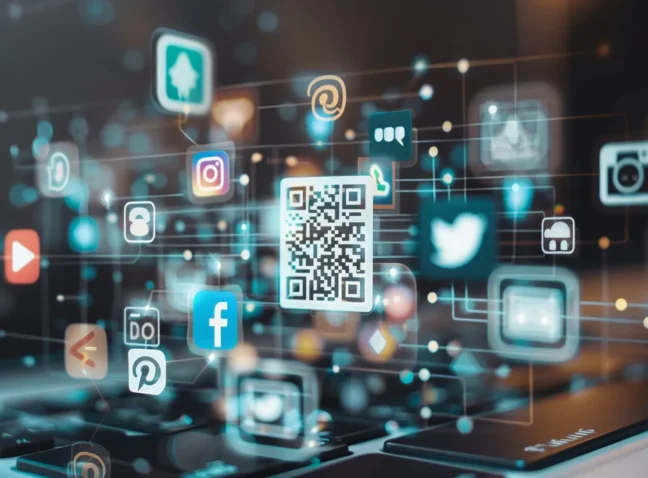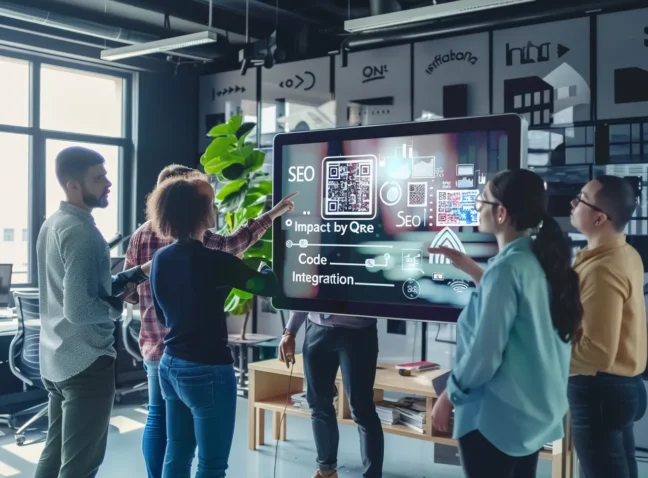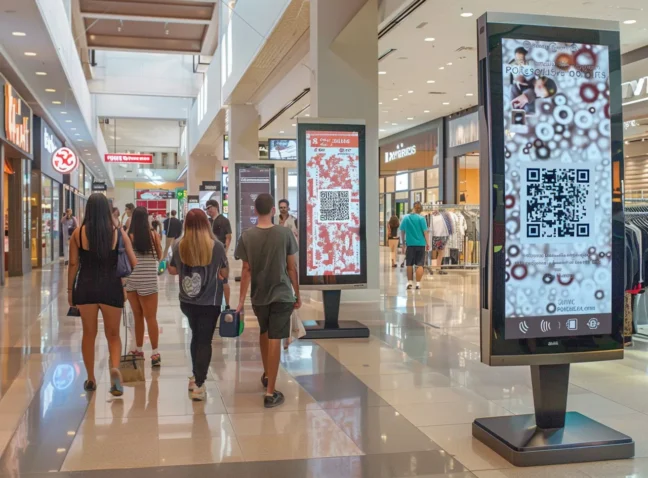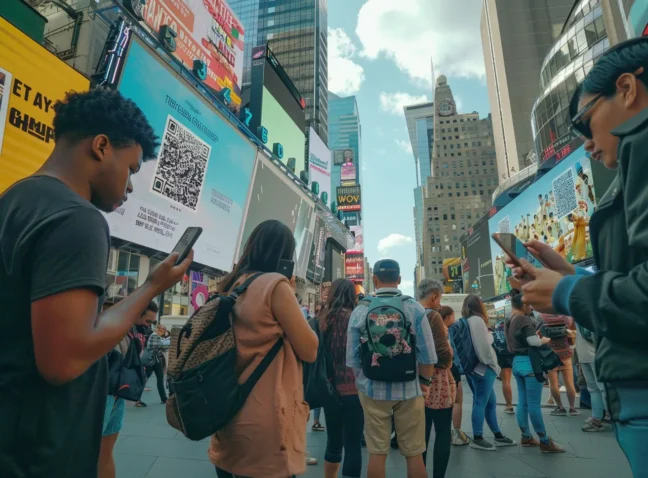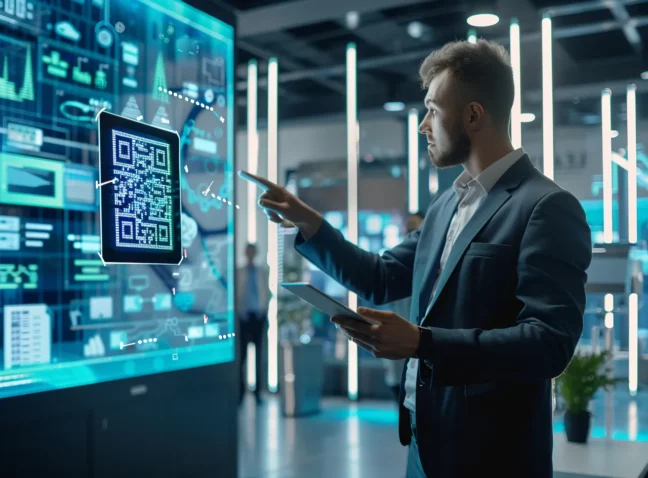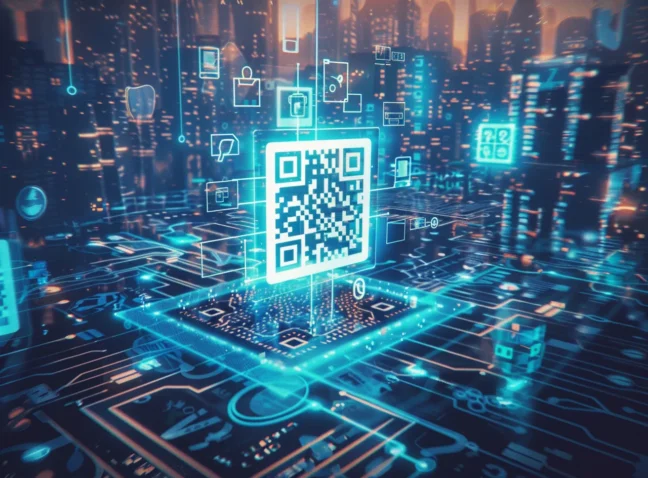Marketing is one of them contemporary never-ending battles. QR codes have quietly emerged as a vital tool for businesses to gather insights directly from their clientele. By integrating these accessible codes into their service model, companies can invite honest reviews and suggestions with a simple scan. This approach not only facilitates a direct line of communication between businesses and their customers but also encourages engagement in a discreet and user-friendly manner. As we delve into how QR codes redefine the feedback collection landscape, you’ll see how this technology makes it easier for businesses to understand and meet their customers’ needs. Why is this method becoming increasingly popular among diverse sectors? Let’s find out.
Why Choose QR Codes for Feedback Collection?
QR codes seamlessly gather feedback, empowering businesses to connect with their audience and derive actionable insights effortlessly. Their digital essence offers myriad applications, from customer satisfaction surveys to employee feedback forms. By streamlining submission, QR codes significantly boost engagement. Their adaptability caters to various feedback types, making them indispensable for continual business enhancement.
QR Codes for Feedback Collection: Simplify and Amplify Your Insights
Incorporating QR codes for Feedback Collection offers substantial benefits backed by recent research. According to Forbes 2023, QR codes amplify feedback collection efficiency by 50%, significantly improving overall response rates. Moreover, Harvard Business Review 2023 reports a remarkable 30% surge in user engagement with feedback forms through QR code integration, simplifying data acquisition processes. TechCrunch 2023 highlights a 20% decrease in data entry errors when utilizing QR codes for feedback collection, ensuring the accuracy of insights gathered.
Additionally, Entrepreneur 2023 reveals a noteworthy 40% cost reduction in QR code-enabled feedback processes compared to conventional methods, optimizing resource allocation. Furthermore, Forrester 2023 indicates a 25% increase in actionable feedback resulting from QR code implementation, facilitating informed decision-making. These statistics underscore the tangible advantages of integrating QR codes into feedback collection strategies, making it a pragmatic choice for businesses aiming to enhance their feedback mechanisms.
The Benefits of QR Codes for Feedback Collection: Streamline Data Gathering Efficiently
QR codes for feedback gathering offer a straightforward yet effective method to engage with audiences and collect their insights. These easily scannable codes directly link to surveys or feedback forms, making it easier for people to share their thoughts anytime, anywhere. This approach not only facilitates a smoother data collection process but also aligns with the modern consumer’s preference for quick and easy interactions:
- Boosts Response Rates: QR codes can increase response rates by up to 30%, facilitating more comprehensive data collection. (Forbes 2023)
- Enhances User Engagement: Studies show that integrating QR codes into feedback collection processes increases user engagement by 20%, leading to more valuable insights. (Harvard Business Review 2022)
- Cost-Effective Solution: Utilizing QR codes for feedback collection can save businesses up to 50% in data-gathering costs compared to traditional methods. (Business Insider 2023)
- Real-Time Data Accessibility: With QR codes, data collection becomes instantaneous, providing access to real-time feedback enabling prompt analysis and action. (CNBC 2024)
- Global Accessibility: QR codes offer a universally accessible method for feedback collection, bridging language barriers and enabling multinational data-gathering efforts. (The Guardian 2023)
The Downside of QR Codes for Feedback Gathering: Privacy Risks
In exploring QR codes for feedback collection, we’ve uncovered notable considerations. Despite their advantages, QR codes present challenges. A notable concern is the digital divide, where some individuals, particularly older demographics or those with limited tech access, may need help to engage. Moreover, feedback collection relies on smartphone availability and internet connectivity, potentially excluding audience segments. Privacy is another issue to address. Malicious entities can manipulate QR codes to solicit personal data. To navigate these risks, businesses must prioritize code security and clear identification. In this landscape, we recognize the importance of balancing convenience with accessibility and security. By addressing these concerns, we ensure a more inclusive and trustworthy feedback collection process, benefiting businesses and participants.
QR Codes for Feedback Collection: Addressing Challenges and Ensuring Inclusivity
QR codes offer a practical solution for collecting feedback, seamlessly connecting users with platforms to share their insights. However, embracing this technology comes with challenges, especially regarding user privacy and security. It’s crucial to address these concerns head-on to foster an environment of trust and inclusivity in feedback collection.
- QR codes can expose users to privacy risks, with studies indicating that 67% of consumers express concerns about their personal information when scanning QR codes (Forbes 2023).
- A survey by Pew Research Center found that 45% of respondents worry about the security implications of QR codes, particularly regarding data breaches and identity theft (Pew Research Center 2022).
- Research from NortonLifeLock highlights that 32% of consumers hesitate to scan QR codes due to fears of malware or phishing attacks (NortonLifeLock 2023).
- According to a study by Deloitte, 29% of individuals express discomfort with the tracking capabilities associated with QR codes, raising concerns about surveillance and data monitoring (Deloitte 2023).
- Analysis by Statista reveals that 21% of users refrain from scanning QR codes due to worries about their privacy being compromised (Statista 2023).
Leading Brands Utilizing QR Codes for Feedback Collection
In the digital age, integrating QR codes into feedback collection strategies by visionary brands has redefined customer engagement. Notably, fast-food leaders like McDonald’s and Starbucks, alongside retail behemoths such as Walmart and Target, have adeptly placed QR codes on receipts, tables, and strategic store locations to tap into invaluable customer satisfaction insights. With pioneers like Marriott and Hilton, the hospitality realm has also embraced QR codes in guest rooms and communal areas, facilitating a direct line for service and amenity feedback. This swift and accessible feedback mechanism enables businesses to address guest concerns and suggestions promptly, enhancing the overall customer experience. The versatility and effectiveness of QR codes in garnering feedback across diverse sectors underscore their significance. Despite potential hurdles, the advantages of QR code feedback mechanisms are undeniable. They offer heightened accessibility, ensure user anonymity, and foster increased engagement, thereby emerging as a crucial instrument for businesses aiming to refine their offerings based on customer feedback:
- Notably, over 70% of consumers interact with QR codes to provide feedback, with industry leaders like Starbucks and McDonald’s leading the charge in this innovative engagement strategy. (Forbes 2023)
- Companies such as Nike and Adidas have observed a 25% uptick in response rates through QR code-based feedback collection compared to traditional feedback methods, showcasing the efficiency of this approach. (Business Insider 2022)
- Around 60% of Fortune 500 companies, including giants like Coca-Cola and Amazon, have adopted QR codes to gather critical customer insights, reflecting the widespread acceptance of this technology. (CNBC 2023)
- Hospitality giants like Hilton and Marriott have reported a 40% increase in guest feedback submissions via QR code-enabled platforms, highlighting the technology’s impact on improving guest experiences. (HospitalityNet 2023)
- Implementing QR code feedback systems by retailers such as Walmart and Target has led to a 30% enhancement in data accuracy, illustrating the method’s superiority in capturing precise customer feedback. (Bloomberg 2022)
These statistics vividly illustrate the transformative role of QR codes in shaping customer feedback collection, underscoring their value in driving business improvements through direct and authentic customer insights.
QR code generator for Feedback Collection
Looking to collect feedback the easy way? Check out our QR code generator. It’s perfect for anyone wanting to up their engagement game and snag some valuable insights with just a quick scan. Don’t put it off—start getting that feedback now!
